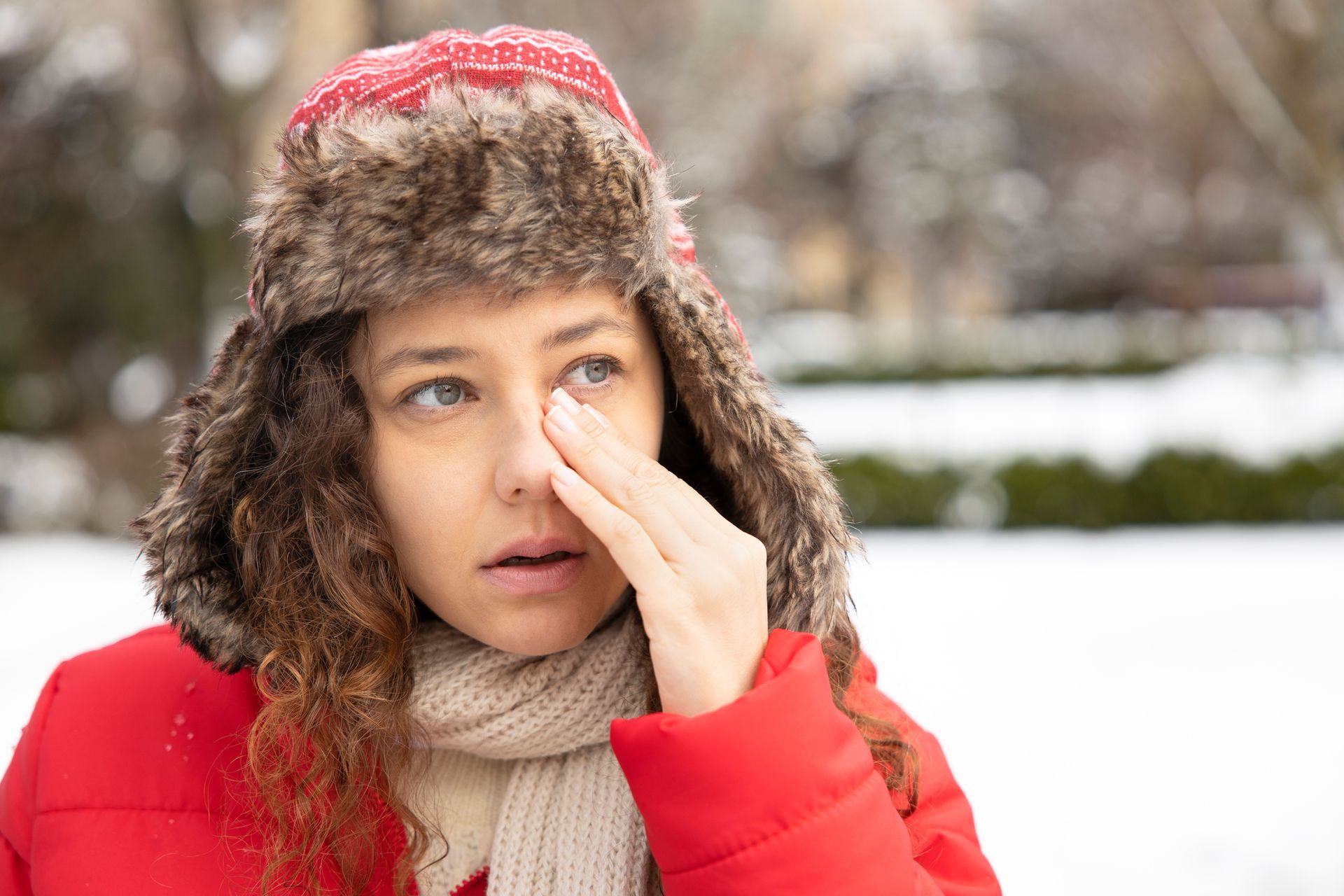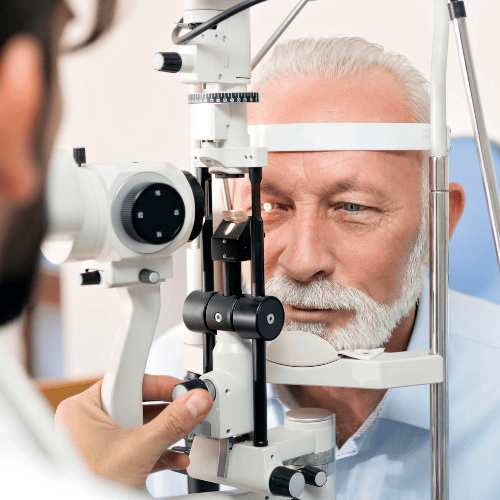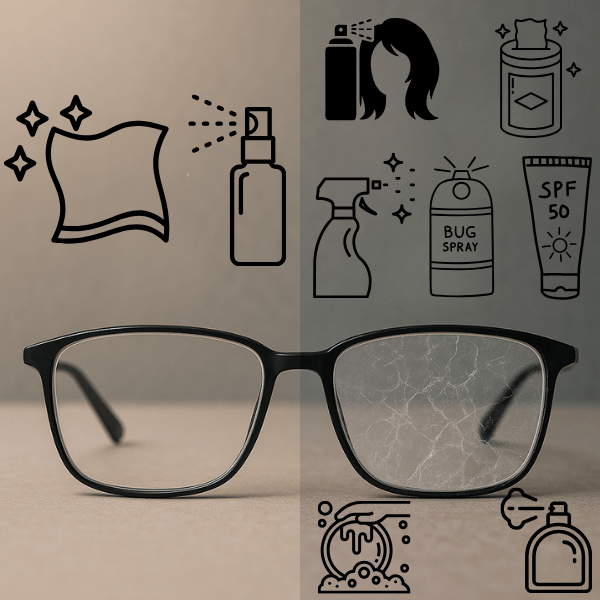WINTER WOES…WHEN DRY EYES ARE THE WORST
As the winter months approach, many of us may notice an increase in discomfort due to dry eyes. This common condition can become particularly bothersome during the colder season, and it’s essential to understand why this happens and what you can do to alleviate your symptoms.

During winter, the air tends to be cooler and drier, both indoors and outdoors. Heating systems, while necessary for comfort, can exacerbate the problem by further reducing humidity levels in our living spaces, and circulating warmer, drier air around us. This dry air can lead to increased evaporation of tears, leaving your eyes feeling parched and irritated.
Additionally, the winter months often bring changes in our daily routines. Many people spend more time indoors, where the air is typically drier. Activities such as sitting in front of a computer or using digital devices for extended periods can also contribute to dry eyes, as we tend to blink less when focused on screens. This can further exacerbate discomfort, leading to symptoms such as redness, a gritty sensation, and blurred vision.
If you find yourself struggling with dry eyes this winter, there are many simple strategies you can employ to find relief. First, consider using a humidifier in your home to add moisture to the air. This can help create a more comfortable environment for your eyes. Additionally, taking regular breaks from screens to blink and reduce eye strain; the 20-20-20 rule is a great guideline: every 20 minutes, look at something 20 feet away for 20 seconds, while blinking.
Protective eyewear is another effective way to combat dry eyes in winter. Wearing sunglasses or goggles can help shield your eyes from cold winds and dry air when you are outdoors. This simple step can significantly reduce irritation and keep your eyes more comfortable. Visit our optical gallery for our collection of Ziena frames with removable silicone shields that trap moisture and protect from allergens.
Our final tip is to stay hydrated. Remember to drink plenty of water throughout the day to support tear production and maintain moisture in your body.
Dry eye disease can be a chronically debilitating condition, leading to severe symptoms and even vision loss in some cases. While these simple guidelines can help manage your dry eye symptoms in winter, we encourage you to be proactive and
book an appointment with one of our optometrists to ensure you receive the most effective care. There are many new and effective treatments for dry eye disease – we look forward to discussing this with you at your next visit.











